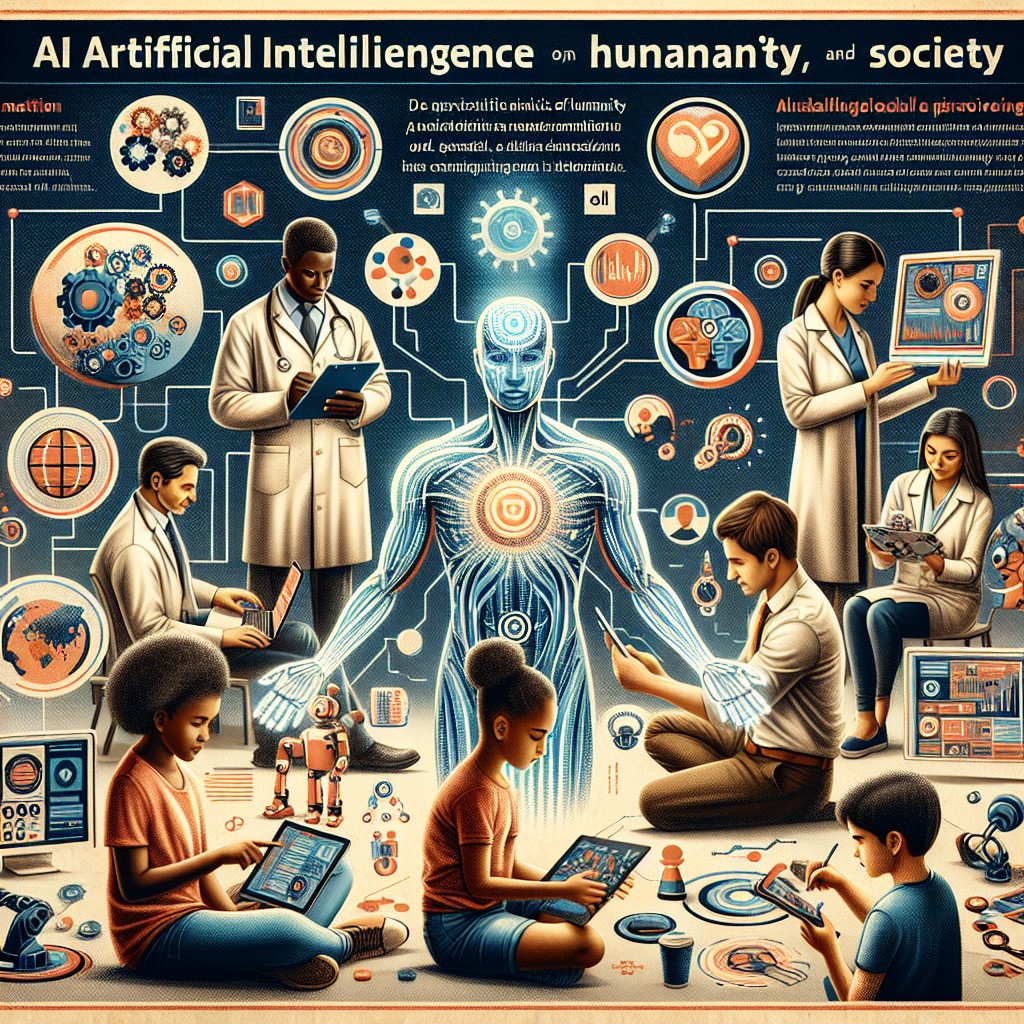Artificial Intelligence (AI) has rapidly become a transformative force in various aspects of our lives, offering numerous benefits to humanity and society as a whole. From revolutionizing industries to enhancing daily activities, AI has the potential to shape the future in remarkable ways.
One of the significant benefits of AI is its ability to automate repetitive tasks, freeing up valuable time for humans to focus on more creative and complex work. This automation leads to increased productivity and efficiency across industries such as manufacturing, healthcare, finance, and transportation. By taking over mundane tasks, AI enables workers to utilize their skills and expertise, resulting in higher job satisfaction and overall well-being.
AI also plays a crucial role in improving healthcare outcomes. Machine learning algorithms can analyze vast amounts of medical data and identify patterns that humans might miss. This ability aids in early detection of diseases, personalized treatment plans, and more accurate diagnoses. Moreover, AI-powered robotic surgery systems enhance precision, reduce the risk of errors, and shorten recovery times. By leveraging AI in healthcare, we can ultimately save lives and improve the quality of care.
Furthermore, AI has the potential to address some of the world's most pressing challenges. For instance, in the field of agriculture, AI can optimize crop yields, predict and prevent disease outbreaks, and reduce water usage through intelligent irrigation systems. This technology empowers farmers to make data-driven decisions, leading to sustainable and efficient practices. Additionally, AI can aid in disaster response by analyzing data from various sources to provide real-time insights and support decision-making for emergency services.
AI also has significant implications for education. Adaptive learning platforms powered by AI can personalize educational experiences, catering to individual student needs and learning styles. AI algorithms can analyze student performance data and provide targeted feedback and recommendations, ultimately improving learning outcomes. Moreover, AI-based virtual assistants can assist teachers in administrative tasks, freeing up more time for direct student interactions and personalized instruction.
However, it is essential to acknowledge and address the potential ethical considerations surrounding AI. Issues such as privacy, bias in algorithms, and the impact on employment require careful consideration and regulation to ensure responsible and fair use of AI technology.
In conclusion, the benefits of AI for humanity and society are vast and wide-ranging. From increased productivity and efficiency to improved healthcare outcomes and addressing global challenges, AI has the potential to positively transform our world. By embracing AI responsibly and ethically, we can harness its power to create a better future for all.

Published on March 19, 2023
The Benefits of AI for Humanity and Society
Share This Article
More Articles You Might Like
Discover More Content
Explore our collection of articles across various topics and categories. From cutting-edge technology insights to wellness wisdom, we curate the best stories to expand your horizons.
Article ID: 26